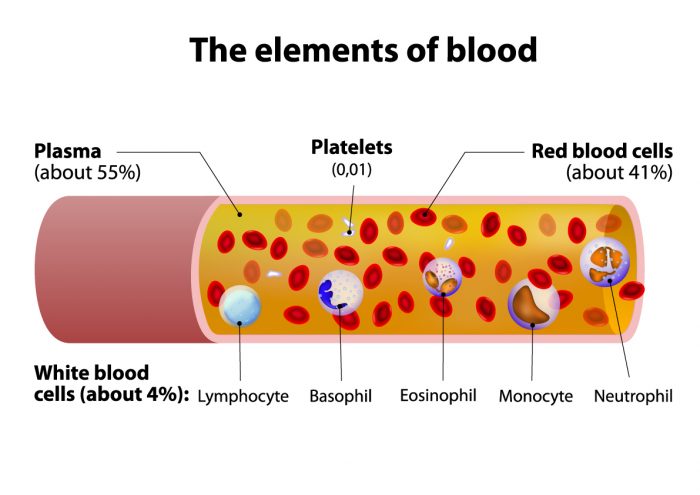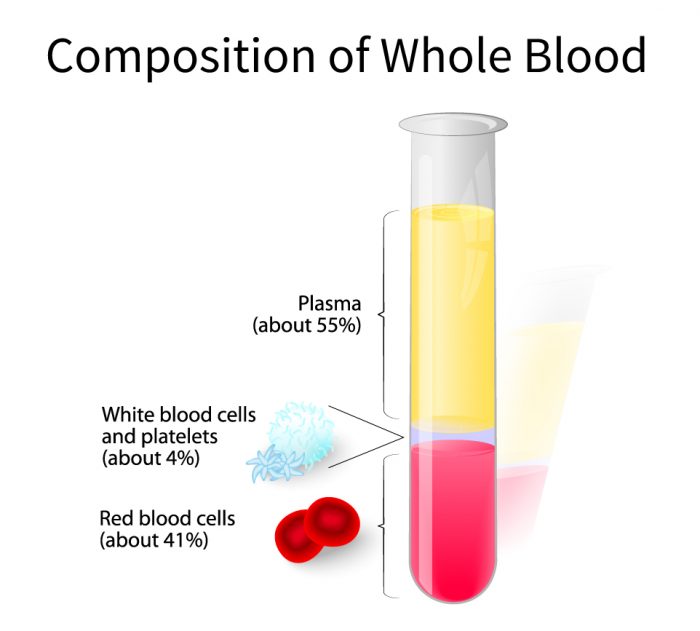Can you really make money donating your plasma?
Is it safe to donate plasma 2 times a week? You can donate twice a week. The U.S. Food and Drug Administration (FDA) allows 2 donations within a 7-day period, with at least 48 hours between donations. So if you donate on a Monday, you can donate again Wednesday. Drink plenty of water after you donate to help your body replace fluids.
How much do you make from donating plasma?
How much money do they pay to donate plasma?
What disqualifies you from donating plasma?

What happens if you donate plasma too often?
Too frequent donations may impact quality But research suggests that frequent donations may negatively impact the quality of the plasma. This may be due to limitations in the body's ability to quickly regenerate important components of the plasma.Sep 22, 2020
Is it healthy to donate plasma every week?
FALSE – It is healthy to donate once or twice each week, if there is a 48-hour period between each donation. Plasma is 90% water and frequent donation will not harm you. It can lead to side effects such as dizziness and fatigue, but staying hydrated can help avoid these.
How much is my plasma worth?
How much money you make depends on where you're located and how much you weigh. (Typically, the more a donor weighs, the more plasma can be collected and the longer an appointment takes.) But at most donation centers, compensation is around $50 to $75 per appointment. First-time donors sometimes get big bonuses, too.Apr 30, 2021
Does donating plasma cause problems?
Does donating plasma hurt? Donating plasma shouldn't hurt. Donating plasma should feel the same as a regular blood donation. You might feel a stinging sensation when the needle is inserted, but after that, the staff will do its best to make sure that you're comfortable throughout the donation process.Nov 24, 2021
Does donating plasma shorten your life?
This may indicate that donating blood is good for a person's overall health, but the researchers could not confirm this. However, they did point out that donating blood seems unlikely to shorten a person's life span.
Does donating plasma make you gain weight?
As far as side effects are concerned, there are some reported short-term side effects, but there isn't any noted association between plasma donation and weight gain. Interestingly though, there is some evidence to suggest that some people may benefit from plasma donation (more on that in a bit).Feb 24, 2017
Why do they check your elbows when donating plasma?
Because arteries have higher blood pressure than veins, a puncture can lead to bleeding into the arm tissues around the puncture site. The signs of an arterial puncture include a faster blood flow and lighter-than-usual color of blood running through the tubes to the machine collecting your plasma.
How much do you get for donating sperm?
How much for each donation? On average, sperm donors are paid between $100-$150 per donation visit. Donating 1-2 times per week, donors earn an average of $4000 in 6 months.
Is donating plasma safe?
Research shows that plasma donation is safe, and the National Institutes of Health (NIH) emphasize that there is no risk of getting the wrong blood back. Also, the FDA and other health authorities regulate the equipment and procedure of plasma donation.Jan 17, 2022
What should you eat before giving plasma?
For your pre-appointment meal, choose proteins with plenty of heme iron, which is a type of iron present in animal sources and your body can absorb it more easily. Lean red meat, poultry, and seafood are good choices....Other protein-rich foods include:Beans.Shrimp.Eggs.Yogurt.Nuts, nut butters, and seeds.Jul 6, 2021
Is it safe to donate plasma twice a week?
Learn how frequently you can donate and common reasons that may impact your eligibility. Unlike donating whole blood, which you can only do once every 56 days, plasma donors can donate plasma twice every seven days with one day in between donations.Jan 2, 2022
What medications disqualify you from donating plasma?
MEDICATION DEFERRAL LISTAccutane.Antibiotics *Donors who are taking antibiotics are eligible to donate 24 hours after their last dose.Anti-Platelet Medications.Avodart.Blood thinners (such as Coumadin, Heparin, Lovenox, Warfarin)Bovine insulin.Hepatitis B Immune Globulin.Human-derived growth hormones.More items...
How often can you donate plasma?
You may donate twice in a seven-day period and need at least one day in between donations.
What are the components of a whole blood donation?
In whole blood donations, ALL of these blood components are taken and donated - plasma, red and white blood cells, and platelets. That is why with whole blood donations, you must wait longer between donations.
Do you take plasma when you donate?
Your body quickly replaces the lost plasma, which is why you’re able to donate fairly frequently! As a reminder, during plasma donations, we only take your plasma. Your red blood cells, white blood cells, and platelets are all returned back to your body.
How often can you donate plasma?
But most private plasma-donation companies allow people to donate plasma more frequently — up to multiple times a week.
Why do people donate plasma?
Plasma donation can be done more frequently than whole blood donation because a portion of the blood is returned to the body. For some people, this makes plasma donation easier — and less likely to cause side effects — than whole blood donation.
Why is plasma donation important?
Plasma donation is important because blood plasma can be used to help treat people who have experienced: trauma. shock. burns. severe liver disease.
How does a plasmapheresis machine work?
This machine works by removing your blood, separating out the plasma, and returning the blood back to your body. Plasma donations should always be performed in a qualified facility that utilizes sterilized equipment.
What is the name of the plasma that is used to treat disease?
In addition, a type of plasma called convalescent plasma. Trusted Source. may be able to be donated by people who have recovered from a disease. Once donated, this antibody-containing plasma may be used as a potential disease treatment option for infected individuals.
What are the functions of plasma?
Blood plasma has a variety of important functions inside the body: 1 regulate blood pressure and blood volume 2 maintain pH levels 3 circulate blood clotting proteins, electrolytes, and other nutrients needed for cellular metabolism
What are the factors that disqualify you from donating plasma?
Here are the most common factors that may disqualify you from donating your plasma: Illness. People who have a fever, productive cough, or are feeling generally unwell shouldn’t donate. This also applies to people who are currently receiving antibiotics for active infections. Medical conditions.

Popular Posts:
- 1. how to donate to the turpin family
- 2. how much to donate based on.income
- 3. how to donate broadway in chicago theater tickets
- 4. where to donate old bridesmaid dresses in nj
- 5. who can donate an organ in the us
- 6. where can i donate blood in my area
- 7. when did i donate on twitch
- 8. reasons why you cant donate blood
- 9. donate what you can
- 10. who cannot donate plasma